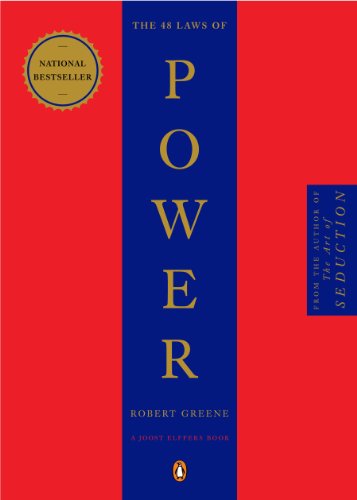

This article is an excerpt from the Shortform summary of "The 48 Laws of Power" by Robert Greene. Shortform has the world's best summaries of books you should be reading.
Like this article? Sign up for a free trial here .
Overview of Law #32: Play to People’s Fantasies
Conjure up attractive fantasies in contrast to the gloomy realities of daily life, and people will flock to hear them. Truth is less pleasant, and fantasies are preferable. Spin the right tale at the right moment and wealth and power will follow.
Principles of Law 32
Fantasy is appealing when life has become boring, gloomy, or oppressive. If you can play to people’s fantasies at the right moment, when spirits are low, you’ll attract wealth and power.
According to Law 32 of the 48 Laws of Power, the following are some types of fantasies that attract and deceive the masses, by offering a contrast to a depressing reality.
Transformative change: Change is usually slow, and requires hard work, sacrifice, and persistence. Instead, promise instant, painless transformation of people’s fortunes (poverty to riches, sadness to happiness, sickness to health).
Adventure: Everyone must live within day-to-day constraints, including social and geographic boundaries, personal and familial responsibilities, financial and educational limits, etc. Instead, present exciting new worlds, where the usual rules don’t apply.
- In the 1700s a young man drew attention in London for his riveting stories and writing about the exotic island of Formosa (now Taiwan). When he died later, it was learned that his stories and even the “Formosan” language he spoke were made up.
Peace and harmony: Humans are divided by so many things — culture, race, wealth, education, religion, politics — that conflict is inevitable. Instead, promise mystical connection.
Resurrection: The past is dead and gone, which is difficult for people to accept. Offer a fantasy that brings some element of the past back to life, for instance through the discovery of lost masterworks or sunken treasure.
Putting Law 32 to Work
Here’s an example of how to apply Law 32 of the 48 Laws of Power: In the late 1500s, when Venice had fallen on difficult times in contrast to its glorious past, a man named Bragadino arrived claiming he could make gold multiply by applying a secret substance. Venetians built him a palace and promised to fund a luxurious lifestyle, if he would produce gold to restore the city to its former glory. People believed his stories for a while, but eventually grew disillusioned and Bragadino had to flee to Bavaria, where he was eventually hanged after perpetrating the same scheme.
His fantasy was powerful because it came at the right moment, when Venice needed relief from its misfortune. Rather than the hard, painful work of rebuilding the city, he offered instant transformation — gold miraculously multiplied. For a while at least, his fantasy resonated and he enjoyed wealth and fame.
Exceptions to Law 32
Are there any exceptions to Law 32 of the 48 Laws of Power? Should you ever not play to people’s fantasies? Spinning fantasies can be dangerous if people realize they’re being deceived. To steer clear of such shoals, keep your stories and promises vague, and avoid getting close to a point where you’re expected to produce something concrete. You can safely follow Law 32 of the 48 Laws of Power: Play to People’s Fantasies.
———End of Preview———

Like what you just read? Read the rest of the world's best summary of "The 48 Laws of Power" at Shortform . Learn the book's critical concepts in 20 minutes or less .
Here's what you'll find in our full The 48 Laws of Power summary :
- Why you should never outshine your boss
- How to appear like a friend but behave like a spy
- The 6 rules you absolutely must not violate, if you want to be successful






